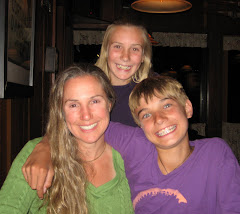Database of Award-Winning Children’s Literature: A+
http://www.dawcl.com/

This was the one find that I was really jazzed about. The stated purpose of this non-subscription website, maintained by CSU, San Bernardino librarian Lisa R. Bartle, is “to create a tailored reading list of quality children's literature” as an aid to help librarians, teachers, and parents guide child-readers. To our enormous collective benefit, Ms. Bartle is “deeply committed to the idea of providing information for free.”
The coolest thing about the site is that it allows users to search the database not only by award, genre, and book format, but also by reference to elements such as the ethnicity, nationality, and gender of the protagonist, whether the book is multicultural (defined as including two or more cultures interacting), and the use of languages other than English. As a result and by way of example, I was able to locate in moments 20 award-winning picture books with female Native American protagonists. The book blurbs were simple summaries, rather than reviews, and there was no explicit discussion of critical literacy, but the site’s search engine creates a powerful tool for teachers to create inclusive classrooms and launch critical literacy discussions. I love this site!!
Fact Monster: All About Books: B-
http://www.factmonster.com/ipka/A0768701.html?utm_source=google&utm_medium=ppc&utm_campaign=books&gclid=CJT17JKohZYCFQ8QagodNCFvEg
This site is very kid-friendly. It has many different recommended lists of books, including best sellers by year (5 years only, plus “all-time”), teachers’ top 100, kids’ top 100, books with girl characters (be warned – Amelia Bedelia is included here under “novels”), and one of the more substantive categorizations – books by award (with subcategories for several different awards going back 30-86 years in some cases). Like most of the other sites I came across, this one was thin substantively. Except for the award lists, its indexing was so general as to be almost useless as a tool for choosing a book for a particular topic or age group. I upgraded it to a B- from a C only because of its special appeal and accessibility to child-users.
Carol Hurst’s Children’s Literature Site: C+
http://www.carolhurst.com/
This site describes itself as “a collection of reviews of great books for kids, ideas of ways to use them in the classroom and collections of books and activities about particular subjects, curriculum areas, themes and professional topics.” I found the site’s promise to be only marginally fulfilled, with good depth in some areas and huge gaps in others. An initially promising section entitled “Looking Critically at Picture Books” turned out not to be about critical literacy at all but seemingly about having children look closely at pictures for meaning. The exercise was at once rote and odd – not something I’d be in a hurry to do with children.
About.com: Children’s Books: C
http://childrensbooks.about.com/
A subset of the greater About.com world, the purpose of this site, as described by its administrator, Elizabeth Kennedy, is to help those “who work with children and value children’s literature” locate the children’s books and other online resources best suited to the children in their world. The site struck me as thin on substance and heavy on advertising. There are many interesting topics discussed on the forum – this month, for example, the site is highlighting the issue of Cinderella stories, but the discussions typically don’t have the depth that I’d like to see. The Cinderella article, for example, discusses the elements of a Cinderella story and provides sources for locating multi-cultural Cinderella stories, but it neglects entirely the critical literacy issues surrounding the Cinderella paradigm and omits any reference (that I could find, at least) to counter-narratives.

1 comment:
Daphne, you have come up with the perfect reason why you need to continue this blog!
Thanks
vivian
Post a Comment